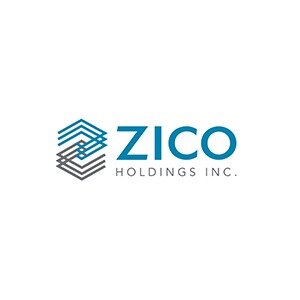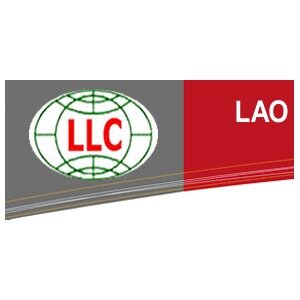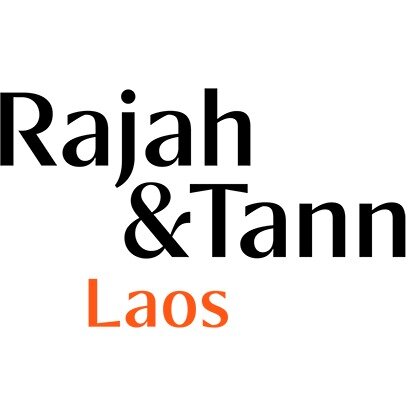Best ESG Advisory & Compliance Lawyers in Laos
Share your needs with us, get contacted by law firms.
Free. Takes 2 min.
Or refine your search by selecting a city:
List of the best lawyers in Laos
About ESG Advisory & Compliance Law in Laos
ESG stands for Environmental, Social, and Governance. ESG Advisory & Compliance in Laos covers the legal and regulatory frameworks that help organizations address their impacts on the environment, society, and corporate governance. In recent years, there has been growing awareness and government attention on sustainable development, responsible business practices, and international standards. ESG compliance has become increasingly important for companies operating in Laos, especially as global investors and trade partners expect higher standards of transparency and responsibility. Navigating this complex area requires an understanding of local laws, international guidelines, and evolving regulatory expectations.
Why You May Need a Lawyer
Engaging a lawyer for ESG Advisory & Compliance in Laos can provide crucial support in several scenarios. Businesses may need legal help when setting up new operations to ensure they comply with environmental impact assessments or labor regulations. Companies expanding their activities might require help navigating land use or indigenous rights issues. Investors and international partners often request ESG due diligence to assess risks before engaging with a Lao business. Legal counsel can also be invaluable in responding to new or updated environmental laws, managing sustainability reporting requirements, or defending against regulatory enforcement actions. By seeking legal advice, individuals and organizations can safeguard their interests and build a solid ESG compliance framework.
Local Laws Overview
Laos has laws and regulations that specifically address key ESG issues. On the environmental front, the Environmental Protection Law and its subordinate legislation regulate pollution control, environmental impact assessments, and the use of natural resources. Social compliance includes labor laws that define working conditions, occupational health and safety, and community engagement, such as the Law on Labor and relevant ministerial decisions. Governance touches on anti-corruption frameworks, transparency obligations, and corporate reporting, relevant to both public and private sector entities. International standards and guidelines, such as the Equator Principles and IFC Performance Standards, are increasingly referenced in large projects, especially those with foreign investment or multilateral funding. While the legal framework is evolving, understanding both national legislation and soft law is crucial for robust ESG compliance in Laos.
Frequently Asked Questions
What is ESG and why is it important in Laos?
ESG refers to Environmental, Social, and Governance criteria that businesses should meet to operate responsibly. In Laos, this is important to align with both national development goals and international expectations, especially for attracting foreign investment and managing reputational risks.
Are there specific ESG laws in Laos?
While Laos does not have a single ESG law, it has a framework of laws covering environmental protection, labor practices, and good governance. These collectively form the basis for ESG compliance.
Who enforces ESG related laws in Laos?
Relevant ministries, such as the Ministry of Natural Resources and Environment and the Ministry of Labor and Social Welfare, oversee environmental and social compliance. The State Inspection and Anti-Corruption Authority oversees governance matters.
Is an Environmental Impact Assessment required for all projects?
Most large-scale or potentially impactful projects in Laos require an Environmental Impact Assessment before approval. The requirements vary by project size, type, and location.
What are common ESG compliance challenges in Laos?
Common challenges include complex and evolving regulatory requirements, limited local enforcement capacity, and difficulties in community consultation and engagement.
Do foreign investors have to comply with ESG standards in Laos?
Yes, both local and foreign investors are required to comply with national ESG related regulations. In addition, investors may face further requirements from international partners or financial institutions.
What are the penalties for non-compliance with ESG requirements?
Penalties may include fines, suspension of licenses or permits, clean-up obligations, or in severe cases, criminal liability. Reputational and financial risks may also arise.
How can I integrate ESG compliance into my business strategy in Laos?
It is advisable to conduct regular legal and ESG audits, implement internal policies, provide staff training, and engage with stakeholders, including local communities and regulators.
Are international ESG standards recognized in Laos?
While not always legally required, international ESG standards are often used as benchmarks, particularly in projects with foreign investment or international funding.
How can a lawyer help with ESG Advisory & Compliance in Laos?
Lawyers can provide guidance on the latest legal requirements, prepare documentation, represent clients before regulatory bodies, and help develop comprehensive compliance strategies.
Additional Resources
For further information and assistance regarding ESG Advisory & Compliance in Laos, the following resources may be helpful:
- Ministry of Natural Resources and Environment - for environmental laws and compliance guidance - Ministry of Labor and Social Welfare - for labor standards, worker rights, and social compliance matters - State Inspection and Anti-Corruption Authority - for governance and anti-corruption requirements - Lao National Chamber of Commerce and Industry - for business compliance and training - International financial institutions such as the World Bank or the International Finance Corporation may also offer standards and tools relevant to ESG
Next Steps
If you believe you need legal advice or assistance in relation to ESG Advisory & Compliance in Laos, consider the following steps:
- Assess your organization’s current ESG-related risks and obligations - Gather relevant documents such as permits, policies, and past compliance records - Reach out to a qualified legal professional with experience in ESG and Lao regulatory frameworks - Prepare specific questions and objectives for your legal consultation - Stay informed about updates in national ESG laws and emerging international standards - Implement recommended compliance measures and conduct regular reviews with legal counsel
By being proactive and engaging the right expertise, you can position your organization for sustainable growth and reduce the risks associated with non-compliance with ESG obligations in Laos.
Lawzana helps you find the best lawyers and law firms in Laos through a curated and pre-screened list of qualified legal professionals. Our platform offers rankings and detailed profiles of attorneys and law firms, allowing you to compare based on practice areas, including ESG Advisory & Compliance, experience, and client feedback.
Each profile includes a description of the firm's areas of practice, client reviews, team members and partners, year of establishment, spoken languages, office locations, contact information, social media presence, and any published articles or resources. Most firms on our platform speak English and are experienced in both local and international legal matters.
Get a quote from top-rated law firms in Laos — quickly, securely, and without unnecessary hassle.
Disclaimer:
The information provided on this page is for general informational purposes only and does not constitute legal advice. While we strive to ensure the accuracy and relevance of the content, legal information may change over time, and interpretations of the law can vary. You should always consult with a qualified legal professional for advice specific to your situation.
We disclaim all liability for actions taken or not taken based on the content of this page. If you believe any information is incorrect or outdated, please contact us, and we will review and update it where appropriate.
Browse esg advisory & compliance law firms by city in Laos
Refine your search by selecting a city.












